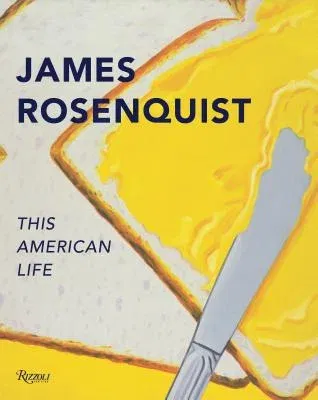A fresh look at this giant of 1960s Pop Art--featuring his
billboard-sized images of commercial subjects and combining his eye of
an advertising man and the heart of a Pop artist.
Lipsticks, automobiles, dishwashers, men in business suits, spaghetti,
rockets, airplanes, hairdryers, ice cream cones and pigtailed girls:
James Rosenquist (1933-2017) has always known how to combine these
seemingly disparate but always all-American elements into whirlwind,
billboard-sized collages. With airbrushed surreal euphoria, he slammed
colors, patterns, and objects into one another with the eye of an
advertising man and the heart of a Pop artist. This momentous catalogue,
published to accompany the first in-depth survey of the artist's work of
the 1960s through 1980s, will give long-overdue attention to
Rosenquist's singular achievement in American art during these three
decades.
From 1957 to 1960, Rosenquist earned his living a billboard painter.
This was perfect training, as it turned out, for an artist about to
explode onto the pop art scene. Like other pop artists, Rosenquist
adapted the visual language of advertising and pop culture (often funny,
vulgar, and outrageous) to the context of fine art. An informative essay
by art historian Judith Goldman examines the influence of Rosenquist's
early days as a billboard painter, his early themes and techniques, and
his similarities and differences with other pop artists like Warhol and
Lichtenstein. The essay focuses on areas that have only been
superficially addressed in the literature to date, bringing the level of
Rosenquist scholarship up to that of his Pop Art contemporaries.
For any collector of American art, this gives attention to Rosenquist's
singular achievement in American art during these three decades.

